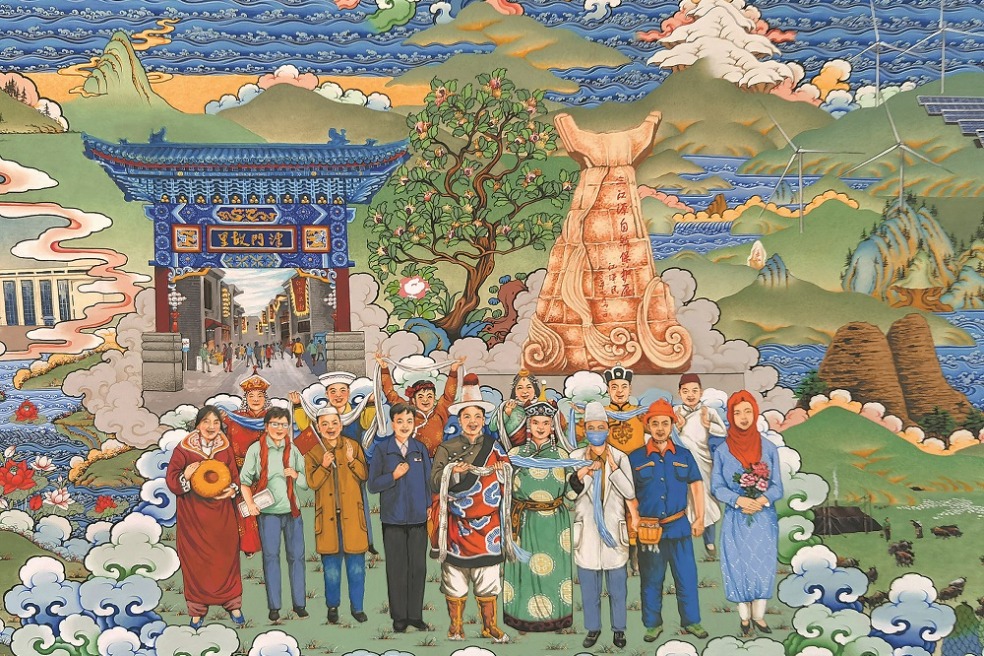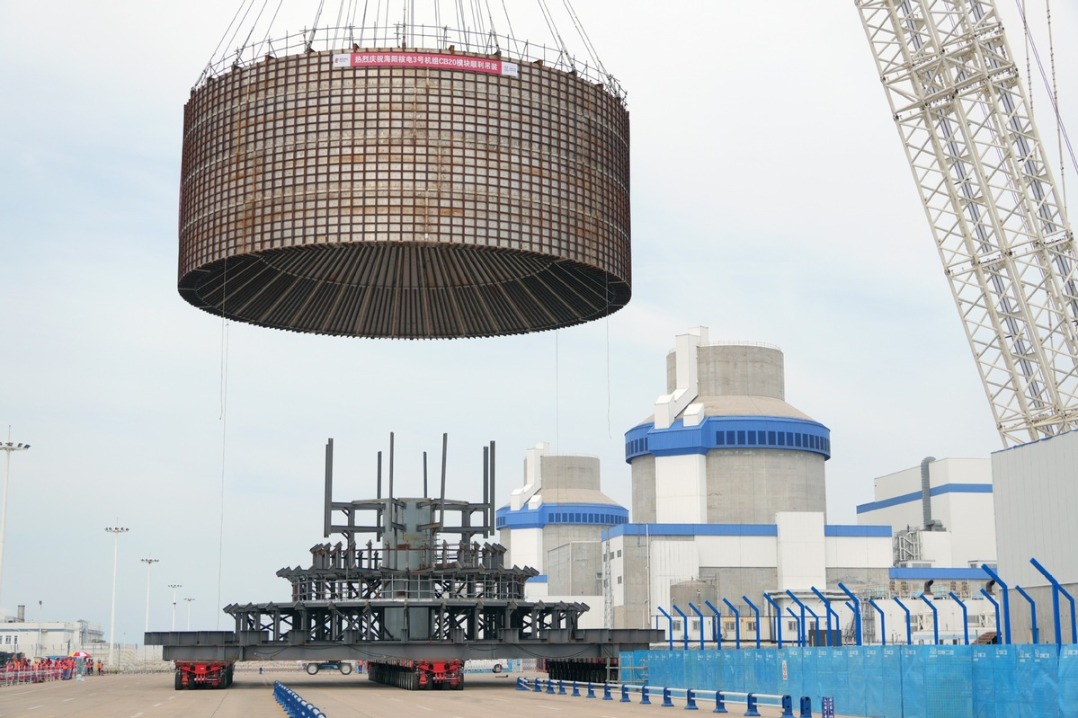Overcoming pain to bring comfort
An anesthesiologist's letter to his surgeon father about why he honored his dad's last wishes has won recognition while increasing public awareness about the often-misunderstood profession, Li Yingxue reports.

Tan Wenfei decided to never apply for medical school when he saw his father's hair around his temples turn white overnight after a fatal accident during a surgery he was involved with in 1993.
Today, Tan is an anesthesiologist at the First Hospital of China Medical University in Shenyang, Liaoning province.
In 2019, the 20th year since he entered the field, Tan wrote a letter for his father, who passed away over two decades ago.
The son recalled his dad's final words. He told his son that, despite all the difficulties he'd faced as a surgeon, he hoped his boy would become an anesthesiologist.
"If you have a choice when you graduate, become an anesthesiologist. Surgeons can't work without anesthesiologists. The risk of anesthesia is high, and no one wants to do it. You are my son. And I hope you can carry this burden with courage,"Tan's father had told him.
In the letter, Tan recounts several events that shaped both of their careers.
Although his father was respected for his surgical expertise, two fatal medical incidents in the 1970s and the '90s changed his life.
Tan also experienced two events when his patients nearly died during surgery. But both were saved, thanks to advances in the field.
He wonders if contemporary technology could have saved his father's patients. And, if so, he wonders if he might have been more willing to pursue medical school after seeing what his dad went through emotionally.
The 45-year-old's biggest regret is that he could not work alongside his father.
"Improved anesthesiology means the distance between us as father and son is dissolving a little more,"Tan writes in the letter.
The letter won him the 2019 Wakley-Wu Lien Teh Prize, which aims to give a voice to Chinese doctors to tell their own stories and express their concerns. The Lancet, one of the world's leading medical journals, launched the honor.
It only took Tan an hour to finish the 1,800-word letter because all of the memories are so vivid.
The Lancet comments that Tan's essay demonstrates a powerful voice to tell clinical truths that inform, engage and encourage.
The award-winning letter went viral so quickly that Tan received greetings from one of his patients when he walked into the ward the next day.
"He told me he hadn't realized the importance of anesthesiologists' work," Tan says.
Tan earned his doctorate in anesthesiology at China Medical University and was a visiting scholar at the department of anesthesiology of the University of California, Los Angeles, in 2011.
"It's just a normal job, like any other," Tan says.
"There are more than 100 anesthesiologists in our hospital (in Shenyang). I'm just one of them. The hospital performs around 70,000 surgeries each year. Every single one requires an anesthesiologist."
Not just injections
"Most people think anesthesia is just giving an injection," Tan says.
"That's not correct. Different anesthesiologists get different results, even with the same anesthetics and techniques.
"Even with the same ingredients, different chefs create dishes with different flavors. An anesthesiologist's job is to bring out the best of anesthetics to make a patient more comfortable."
They monitor vital signs like heart rate, blood pressure, breathing, and awareness before, during and after surgery.
It's stressful.
But Tan says it's worth it when patients wake up saying they didn't feel pain. They sometimes even smile.
These specialized physicians share a range of other responsibilities, such as critical and trauma care and treatments.
They assess and diagnose, provide breathing and circulation support and prevent infection. That's not to mention giving pain relief during labor and delivery.
There are at most about 85,000 anesthesiologists in China.
About 300,000 more are needed, Yangcheng Evening News quotes Chinese Association of Anesthesiologists vice-president Huang Wenqi as saying.
The National Health Commission outlined in a statement in 2018 the importance of improving anesthetic services and developing plans to increase the number of anesthesiologists to 90,000 by 2020 and to 160,000 by 2035.
Scientific art
Tan has watched thousands of films. He believes his trade resembles cinematic art.
Both require balance.
An anesthesiologist must calculate how drugs will affect heart rate and blood pressure during surgery.
The best aren't only careful and skillful but are also good at communication.
"You need to communicate with the patient before surgery and with the surgeon during the surgery," Tan says.
Tan says the operating theater is like a stage in another theatrical senses. The surgeon, anesthesiologist, nurse and patient play their respective roles.
Tan has perfected his routine over the years. He meticulously checks every detail, such as the placement of equipment and a patient's medication and medical history, before work.
"It's the only way I can quickly determine problems during emergencies," he says.
Cui Yong, an anesthesiologist who has worked with Tan for more than a decade, often talks with him about new drugs and techniques. They share experiences.
"Anesthesiologists need to be in the operating room all day. He also uses his spare time on research," the 48-year-old says.
Cui likens an anesthesiologist's role in surgery to a goalkeeper's in soccer. He needs to save the ball near the goal post sometimes but has to focus on the whole game throughout the match.
Tan has run a WeChat account called Mazui Yishu ("the art of anesthesiology") since 2017 to help the public better understand the medical field.
His writing mostly focuses on his experiences and outlook, and is imbued with literary references and humor.
Tan hopes more people will enter his field.
He dislikes how his profession is portrayed in movies and on TV at home and abroad.
"I hope I can write a film script about anesthesiologists, showing people our real work."
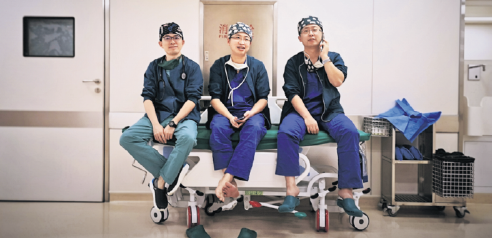
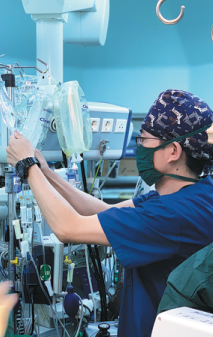
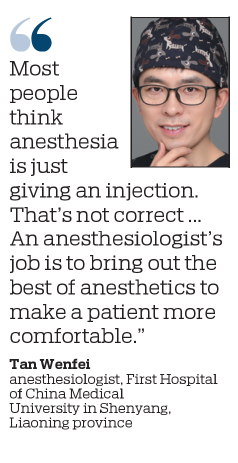
Today's Top News
- Rise of macro-regions and dollar's decline
- Training helps to empower Global South
- Country to cut costs of preschool education
- Pakistani minister hails high-tech ties with China
- China-US trade ties key for world economy
- Prospering Xizang sees surge in overseas visitors

















